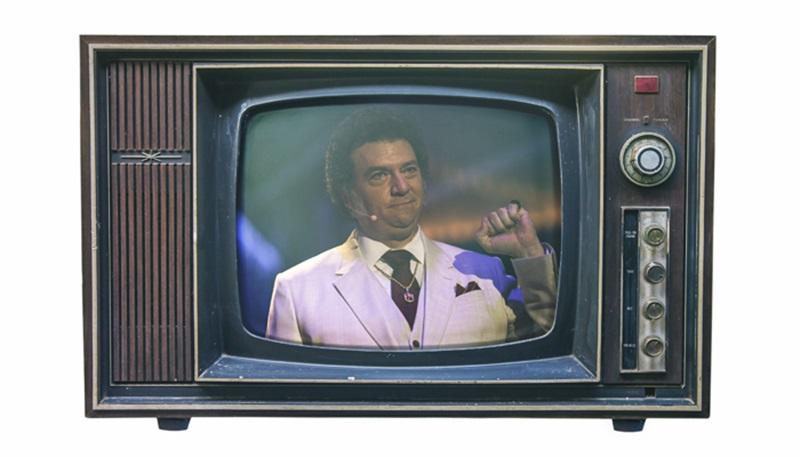Televangelism and Media Literacy
Televangelism and Media Literacy

The medium shapes the message. It therefore makes all the difference whether one communicates something by word of mouth, in print, or by means of an electronic medium like television. That was the verdict of the Canadian communications guru Marshall McLuhan. It is also the conclusion of the American Neil Postman, and of various other media specialists.
According to these people we can't accept or condemn a medium like television simply on the basis of its content. We must study its nature as well, which means that we must strive for “media literacy.” Neil Postman and others tell us how to go about that business. And whether or not we agree with all their conclusions, these people have an important message, which we can't afford to ignore.
This is not only true for television-addicts, but also for those who never watch the tube. We live in the midst of an electronic revolution that influences our entire culture. Nobody is immune, and therefore the proverb “to be forewarned is to be forearmed” is of general application. This article is intended to offer some help in the process of arming ourselves. We will look at a number of publications dealing with the hazards of televangelism.
Televangelism and Show Business⤒🔗
Those who believe that the gospel can be preached on television without suffering a loss of meaning are technologically naive, according to Postman. We already noted some of his arguments. Television has to be “user friendly” because it is too easy for viewers to turn it off or switch channels. The message therefore cannot be too demanding; viewers must be offered what they want, rather than what they need. Religion must be made easy and attractive, promising desirable things like health and wealth.
He also points to the fact that the medium, located in busy, everyday environments like the living room, discourages concentration and an attitude of worship. The screen itself, moreover, is so closely associated with profanity, obscenity, silly commercials, and cheap entertainment that it cannot really be “decontaminated” for sacred use. Religious broadcasts are merely part of the continuum of commercial broadcasting. Moreover, televangelists know that they are in competition with commercial programs. They therefore generally adopt the values of show business, follow modern methods of promotion and marketing, and use celebrities for all they are worth, both on stage and in the audience.
Postman is not alone in drawing attention to the inappropriateness of using the tube for religious purposes. It is the main thesis of the late Malcolm Muggeridge's well-known booklet Christ and the Media (1978). The Calvin College media critic Quentin J. Schultze, in his book Televangelism and American Culture (1991), also agrees with Postman on this point. He reports that this very sense of inappropriateness has caused some protestant preachers to refuse to pray on television, and that, for similar reasons, the Roman Catholic church long prohibited televising Holy Communion.
Personality Cults←⤒🔗
Television, then, encourages a show-business approach, regardless of the nature of the message. Religious broadcasting is as vulnerable on this score as its secular counterpart. Another (and even more sinister) parallel with non-religious television is, Postman says, that televangelists not only invite celebrities, they tend to become celebrities themselves, so drawing attention away from the message to their own persons. That, too, is inherent in the medium, one of whose characteristics is that “it brings personalities into our hearts, not abstractions into our heads.”

This is so because television is a very intimate medium. It brings the viewer face to face with the performer, and it does so in the privacy of one's living room. Also, television does an exceptionally good job portraying the human face, which fits the size of the screen. As Schultze suggests in his most recent book, Redeeming Television, this ability of the tube to capture the human face and delineate character may be one of the secrets of its tremendous power. Viewers “relate” to TV performers, and trust them. That explains, he adds, why television personalities become such influential role models for young people (and even older ones), and why they are in high demand for product endorsements.
It also explains why television encourages the establishment of stereotypes and the rise of personality cults. The business of stereotyping works both ways. Some who watch the typical televangelist learn to associate all religion with sentimentality, hypocrisy, and money-grabbing, whereas others see these same preachers as God's true messengers, to whom, naively and uncritically, they fully commit themselves.
And so, in the eyes of their viewers, television preachers may (and often do) take the place of God Himself. For although God's name is invoked repeatedly, Postman says,
the concreteness and persistence of the image of the preacher carries the clear message that it is he, not He, who must be worshipped. I do not mean to imply, he adds, that the preacher wishes it to be so; only that the power of the close-up televised face, in color, makes idolatry a continuous hazard. Television is, after all, a form of graven imagery far more alluring than a golden calf.
Another Voice←⤒🔗
Postman dislikes television in general. That colours his view of the medium's nature and influence. Critics have commented on this fact. They have especially objected (and rightly so, I think) to his view that the medium per se makes serious discourse impossible. Nevertheless, they have frequently expressed agreement with his evaluation of televangelism. A case in point is the Christian communications scholar Quentin J. Schultze, whom we already met.
Unlike Postman, Schultze believes that television is redeemable. Indeed, one of his books, as we saw, is entitled Redeeming Television. Its message is that Christians, in obedience to the cultural mandate, must strive to transform television into a positive cultural force. But like Postman, Schultze doubts the tube's effectiveness as an evangelistic medium, and his criticism of current televangelism is hardly less severe than Postman's.
Schultze does not paint all TV preachers with the same brush, as Postman tends to do. He distinguishes between two types of televangelists. On the one hand there are evangelical ministers who are subsidized by their own churches, so that they are not financially dependent on their audience, and therefore have the freedom to say what they feel they ought to say. Others try to escape the pitfalls of commercialized and individualized religion by refusing to do regular programs, and by referring the viewers to a local church.
The “Electronic Church”←⤒🔗
Schultze does not explicitly criticize this type of televangelism – a point to which I want to return later. He directs all his ire at the so-called “electronic church,” which accounts for about 75 per cent of all religious broadcasting in America, and has (or had) as star performers people like Falwell, Roberts, Robertson, Schuller, Swaggart, and the Bakkers. A few of the many serious weaknesses of this type of broadcasting, he says, are that it is audience-supported, personality-led, entertainment-oriented, and also that it often has no connection with a local congregation.

In fact, in televangelism there is no congregation, and the term electronic church is a misnomer, Schultze implies. Televangelism denies the centrality of the church, the body of Christ. There is no community, no fellowship, no face-to-face worship, no mutual help and edification. Individualism thrives, and personality cults flourish: uncritical viewers submit to the authority of a charismatic preacher, rather than to that of the Scriptures and the church. Tradition counts for nothing. Entertainment takes the place of worship, and dramatizing the message trivializes it, presenting Christ and His gospel as consumer products. This evil is of course exacerbated by the constant appeals for funds.
Schultze further criticizes televangelism for not even doing what it was supposed to be doing in the first place, namely, bringing the gospel to the unchurched. For it is not the unchurched who turn to religious broadcasts but Christians, mainly evangelicals. The evangelical belief that a full use of the electronic media would evangelize the world in record time, he implies, was utterly mistaken, and shows up the naiveté of American evangelicals' strong faith in technology. Broadcasting the gospel has indeed been effective in areas where the church is persecuted. Under normal circumstances, however, evangelism is necessarily local and interpersonal. Rather than helping the case of evangelism, Schultze believes, televangelism hinders it by encouraging believers to leave the task of spreading the gospel to communication experts.
Smorgasbord Christianity←⤒🔗
Televangelism not only harms the cause of evangelism, Schultze says, it harms the local church as well. True, it does not threaten it with oblivion. Those who support televangelism are usually faithful members of their own churches and continue to attend and support them. But televangelism does not leave the local church unscathed. It affects it in subtle ways – by altering attitudes, expectations, and styles of worship. In protestant churches, and in many Roman Catholic ones as well, it has helped produce a demand for entertainment-oriented worship and charismatic preaching, and encouraged a tendency toward individualism and anonymous attendance. The congregation turns into an audience, each member of which demands no more than “the tepid gruel of individual edification.”
Schultze further points out that televangelism has strengthened a tendency among members to switch churches “almost as easily as they switch television channels.” In that manner also they act increasingly as mere consumers of religion. These types of attitude, I may add, show the strong interaction between a culture and its dominant medium. I use the term interaction advisedly. It denotes two-way traffic. Modern western culture itself is oriented toward entertainment, individualism, anonymity, and consumerism. The medium simply adapts itself to these “values,” and at the same time reinforces them. We have here another argument supporting the view that even total abstinence from electronic media will not necessarily keep us from being contaminated by their spirit, since it is the spirit of the age.
Reform Impossible?←⤒🔗
How are we to evaluate the conclusions of the books we looked at? Postman, as I suggested earlier, has rightly been criticized for his uncompromisingly negative stand where television in general is concerned. He refuses to distinguish between the medium and the use that is made of it. That stance prevents him from admitting, in the face of contrary evidence, that under the right circumstances television can be used for serious discourse. In that sense he is like Malcolm Muggeridge, who also said that television and serious discourse are incompatible, but had to admit that nonetheless his televised interview with Mother Teresa was successful.
Critics have also objected (and in my opinion again rightly so) to Postman's suggestion that attempts to reform content won't solve any problem. All his warnings about the adverse effects of the medium per se may be to the point, as I believe they are, but the regrettable fact remains that the electronics revolution cannot be rolled back. Television has established itself in our society and, in one form or another, is here to stay. It will remain the major communications medium for millions, including children. It is hard to believe that the quality of the programs these millions are offered does not make a difference, and that therefore the type of reforms proposed by the CRTC (for example) does not deserve our support.

Biblical Norms←⤒🔗
Other objections can be (and have been) raised to some of Postman's views. At times he shouts too hard, but perhaps a social prophet has to do that in order to be heard. In any event, we should not allow the noise to deafen us to the main message. That goes for his warnings about television in general, and for his assessment of religious television in particular. On the latter issue, as we have seen, he receives support from Christians like Quentin Schultze and Malcolm Muggeridge.
In his analysis of televangelism Postman is more consistent than Schultze. I am referring especially to the latter's distinction between the preachers of the “electronic church” and other televangelists. Schultze has provided a great deal of evidence to show that the medium necessarily trivializes and profanes the gospel message, that it encourages individualism, personality cults and idolatry, and that it ignores the church. The question is inevitable: does all this not imply a serious warning against all forms of electronic preaching, including that by orthodox ministers? This question must be addressed not only to Schultze, but to all who use television as a medium for evangelism or personal edification.
Raising this type of question is necessary if we are to achieve media literacy. In order to find answers to such questions it is helpful and even necessary, as we have seen, to consult communications experts, but we do not restrict ourselves to them. The first answers are provided by the Bible. In the beginning was the Word, not the image. As we saw, it was Postman's reading of the second commandment that suggested to him the tremendous power of a communications medium in shaping a message, a religion, and an entire culture.
He could also have referred to the New Testament, which tells us how the gospel must be preached and the church built. Note there the stress on interaction, community, the sacraments and the offices, and also, note again the primacy of the Word. Perhaps studies about the religious use of modern media will help us realize anew that these biblical mandates, rather than being time-bound and in need of constant revision, are valid for the church of all the ages.

Add new comment